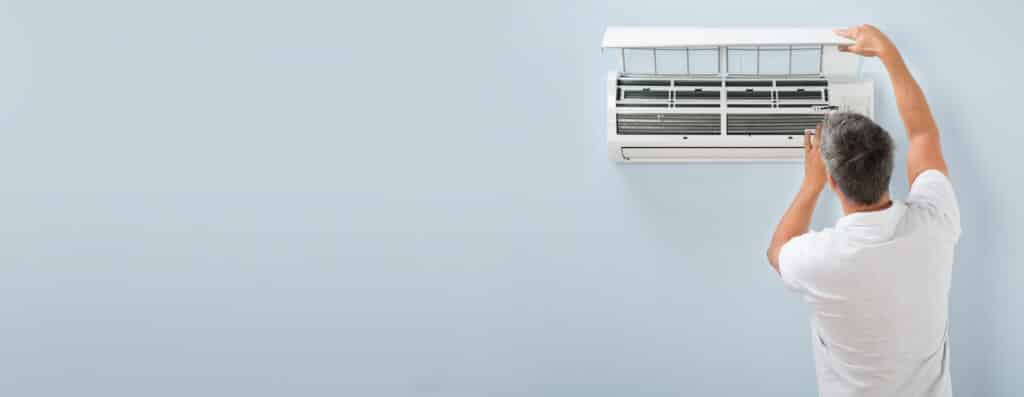Hot, humid summers put significant strain on your air conditioning system. Without routine tune-ups, your AC works harder to maintain cool indoor temperatures, leading to increased energy consumption and higher utility bills. Neglect often results in wear and tear, shortening the unit’s lifespan and increasing repair expenses over time.
Regular tune-ups allow technicians to detect and fix issues early, helping avoid costly breakdowns. A well-maintained system operates efficiently, reducing energy use and lowering monthly expenses. Routine servicing not only keeps your home comfortable but also protects your budget from unnecessary spending.
Lower Monthly Utility Bills
A regularly tuned AC consumes less energy, which directly lowers your utility bills. During peak summer months, energy usage tends to spike due to extended cooling demands. An efficient AC, maintained through regular tune-ups, ensures optimal performance and reduces unnecessary power consumption.
By improving energy efficiency by even 10%, homeowners can see noticeable savings amidst rising utility rates. For example, if your usual summer bill is $200, a 10% gain means saving $20 monthly—significant over the long term. Addressing minor issues like dirty filters or worn-out parts during tune-ups prevents your system from overworking and unnecessarily increasing energy costs.
Routine maintenance reduces energy waste, delivering consistent cooling without inflating expenses.
Prevent Expensive Emergency Repairs
A single breakdown can cost as much as 2–3 years of annual maintenance. For example, replacing a $150 capacitor during a tune-up prevents damage to a $1,500 compressor later. Identifying and fixing small issues early keeps repair expenses low.
Skipping maintenance increases the risk of sudden failures during peak usage, like hot summer months. Emergency service calls often come with higher fees, adding to the already expensive repairs. Tune-ups ensure your system runs reliably, reducing the likelihood of unexpected breakdowns and costly fixes.

Extend the Lifespan of Your AC
Clean coils, correct refrigerant levels, and lubricated parts minimize strain on the components. These preventive measures allow your air conditioner to operate efficiently without unnecessary stress, which extends its lifespan.
Dust, humidity, and pollen contribute to internal damage over time. For example, spring pollen can clog filters, while excess humidity accelerates rust formation. Addressing these factors during tune-ups prevents damage that shortens your AC’s life.
An extended lifespan delays the costly replacement of your system. With replacements ranging from $6,000 to $10,000, every additional year of service provides significant savings. Routine maintenance ensures your air conditioner remains effective for as long as possible, delivering consistent performance without premature failure.
Maintain Warranty Coverage
Many manufacturers require documented maintenance to honor warranty claims. Without proof of routine tune-ups, your warranty could become void, leaving you responsible for costly repairs or replacements.
Skipping this step could lead to financial losses if a major component fails. For instance, replacing a compressor can cost $1,500, compared to the minimal expense of yearly tune-ups. Documenting these services ensures you’re eligible for warranty support, protecting you from unexpected repair expenses.
Review your system’s warranty terms to confirm maintenance requirements. Requirements often include annual inspections or specific checks performed by certified technicians. Scheduling consistent tune-ups not only meets these obligations but also protects your investment.
Improve Indoor Air Quality (Indirect Money Saver)
Regular AC tune-ups enhance indoor air quality by ensuring clean filters and coils. This prevents allergens, pollutants, and dust from recirculating in your home. In areas where high pollen counts are common, a well-maintained AC reduces exposure to irritants that could trigger allergies or asthma.
Healthier indoor air can lower medical expenses. Fewer allergy or asthma flare-ups mean reduced spending on medications, doctor visits, or specialized treatments. Addressing components like clogged filters during tune-ups supports better airflow, which not only improves comfort but also minimizes potential health issues.
Maintaining clean air improves HVAC system efficiency. An AC system free of dirt and buildup operates with less strain, consuming less energy and indirectly saving you money. By combining improved air quality with energy savings, regular tune-ups provide dual cost-saving benefits.

Avoid Hidden Costs of Inefficiency
Inefficient air conditioners often lead to higher expenses beyond increased energy bills. Systems struggling to cool your home consume more power, causing overworked parts to wear out faster. For instance, an overworked motor might malfunction, costing $300–$600 to repair, whereas proactive tune-ups can address wear before it escalates into costly fixes.
Uneven cooling is another sign of inefficiency that impacts your budget indirectly. Rooms that remain warm might result in setting the thermostat lower, increasing energy consumption. This inefficient cycle drives utility costs higher while adding strain to your AC.
Poor performance also creates issues like excess humidity, promoting mold growth. Addressing mold can cost anywhere from $500 to $6,000, far more than regular AC service. A tuned system avoids these secondary expenses by maintaining even cooling and humidity control.
Neglected systems often operate noisily due to loose components or dirty parts. These small issues, addressed during tune-ups, prevent further damage to major components like compressors or fans. For example, a noisy compressor repair may cost $1,500, making preventative measures essential to avoid surprise expenses. Regular maintenance ensures smooth operations, cutting down on hidden costs while keeping your AC efficient.
When and How Often Should You Schedule a Tune-Up?
To keep your AC running efficiently and avoid unnecessary expenses, plan for a professional tune-up at least once a year. The best time is early spring, right before the cooling season kicks in. This ensures your system is ready to handle the summer heat without unexpected hiccups.
If your AC sees heavy use or if you’ve noticed performance issues, consider scheduling maintenance twice a year. Staying proactive with regular tune-ups not only saves you money but also keeps your home comfortable and your system in top shape for years to come.
